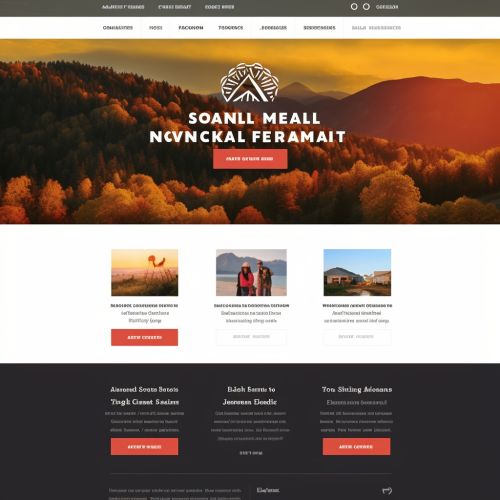Nonprofit website
Overview
A nonprofit website is a digital platform that serves as the online face of a nonprofit organization. It is a critical tool for communication, fundraising, volunteer recruitment, and program delivery. It is designed to provide information about the organization's mission, values, and work, and to engage with various stakeholders, including donors, volunteers, beneficiaries, and the general public.


Purpose and Importance
Nonprofit websites are essential for several reasons. They provide a platform for organizations to share their mission, vision, and values with the public. They also serve as a hub for fundraising efforts, providing a secure and convenient way for supporters to make donations. Furthermore, they offer a space for organizations to showcase their work, share success stories, and demonstrate their impact. In addition, they can be used to recruit and manage volunteers, provide resources and services, and engage with the community.
Key Features
Mission Statement
The mission statement is a brief summary of the organization's purpose and goals. It should be prominently displayed on the website to quickly communicate to visitors what the organization does and why it exists.
About Us Page
The About Us page provides more detailed information about the organization, including its history, leadership, staff, and governance structure. It may also include financial information, such as annual reports and financial statements, to demonstrate transparency and accountability.
Donation Page
A key feature of a nonprofit website is a secure, user-friendly donation page. This page should make it easy for supporters to make a donation, with options for one-time or recurring donations, and various payment methods. It should also provide information about how donations are used, and the impact they have.
Programs and Services Page
This page provides information about the organization's programs and services. It may include descriptions of each program, success stories, and impact statistics. It may also provide resources and tools for beneficiaries.
Volunteer Page
The Volunteer page provides information about volunteer opportunities, and a way for interested individuals to sign up or apply. It may also include resources and tools for current volunteers.
Contact Us Page
The Contact Us page provides various ways for visitors to get in touch with the organization, such as a physical address, phone number, email address, and contact form.
Design and Usability
A well-designed nonprofit website is user-friendly, visually appealing, and easy to navigate. It should be responsive, meaning it works well on various devices, including desktop computers, laptops, tablets, and smartphones. It should also be accessible, meaning it can be used by people with various abilities and disabilities. Key design principles include simplicity, consistency, and clarity.
Content Management Systems
Many nonprofit websites are built using a Content Management System (CMS). A CMS is a software application that allows users to create, manage, and modify digital content. Popular CMS platforms for nonprofit websites include WordPress, Drupal, and Joomla.
Search Engine Optimization
Search Engine Optimization (SEO) is a critical aspect of nonprofit website management. SEO involves optimizing a website to improve its visibility on search engines, which can increase traffic and engagement. Key SEO strategies include keyword research and optimization, quality content creation, and link building.
Analytics and Performance Measurement
Nonprofit organizations often use web analytics tools, such as Google Analytics, to measure the performance of their website. These tools provide data on various metrics, such as the number of visitors, page views, bounce rate, and conversion rate. This data can be used to make informed decisions about website improvements and marketing strategies.
Legal and Ethical Considerations
Nonprofit websites must comply with various legal and ethical standards. This includes privacy laws, such as the General Data Protection Regulation (GDPR), which governs the collection and use of personal data. It also includes accessibility standards, such as the Web Content Accessibility Guidelines (WCAG), which ensure that websites can be used by people with disabilities. Ethical considerations include transparency, accountability, and respect for user privacy and security.
